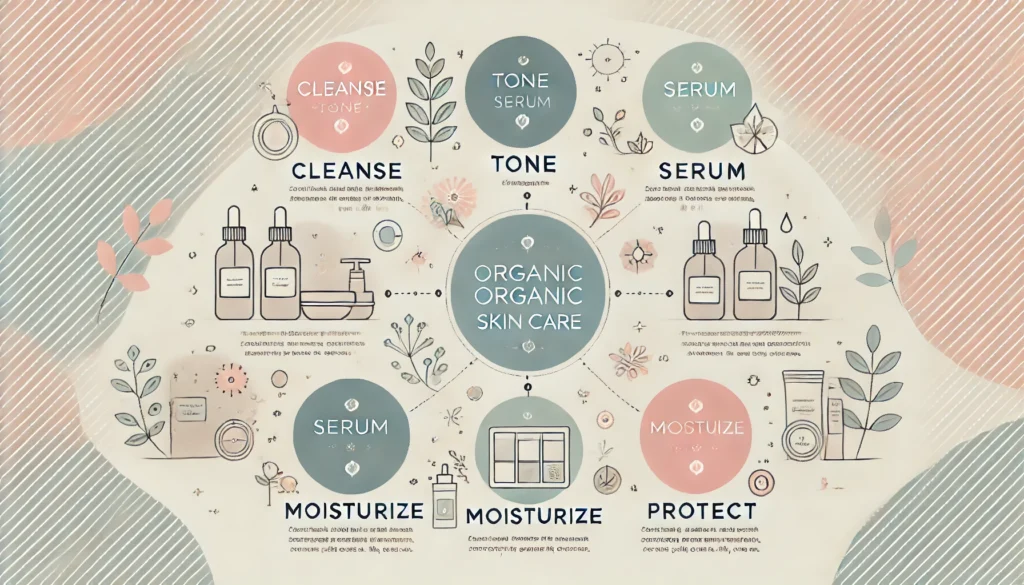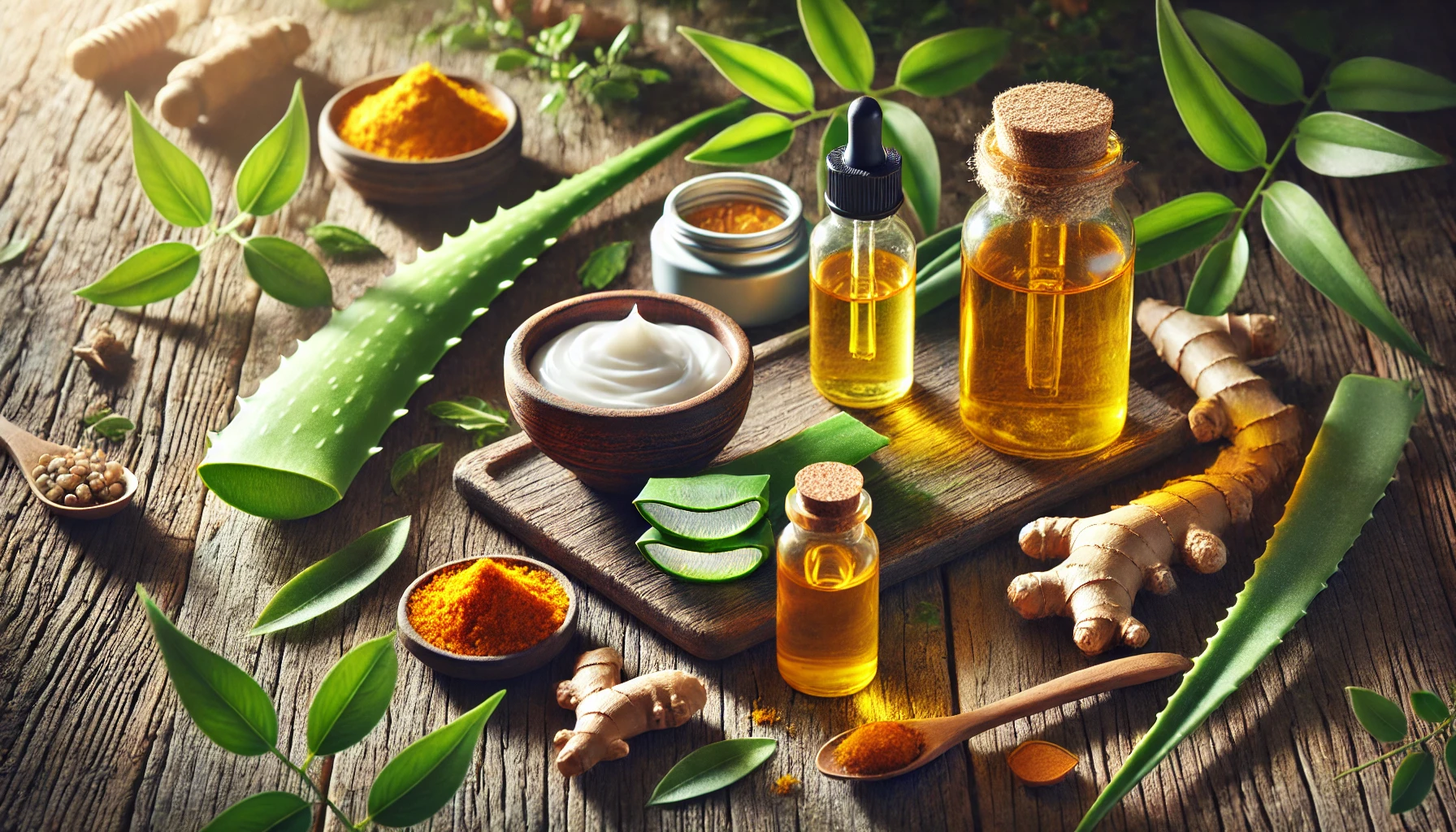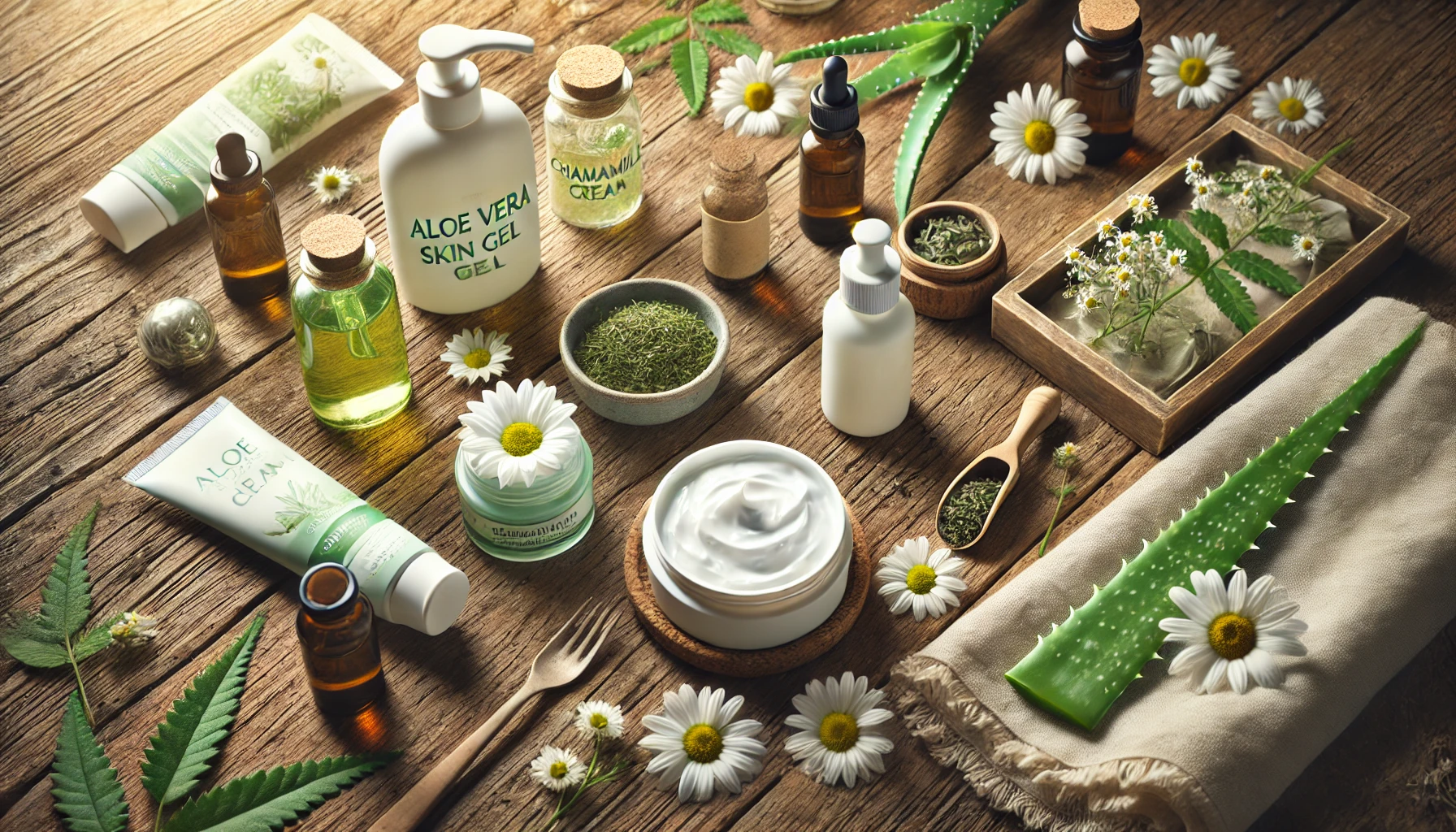“Discover the ultimate guide to well health organic skin care. Learn about natural ingredients, expert tips, DIY routines, and FAQs for radiant, sustainable beauty.”
Organic skin care isn’t just a trend—it’s a lifestyle. As consumers become more aware of what they put on their bodies, many are turning to organic skin care solutions that promote overall well-being. In this guide, we dive deep into what makes organic skin care so unique, why it’s a vital part of a well health lifestyle, and how you can choose the best products for your skin. Whether you’re new to the world of organic beauty or looking to fine-tune your routine, read on for expert advice, DIY tips, and answers to your most frequently asked questions.
What Is Organic Skin Care?
Organic skin care is the art and science of creating beauty products using ingredients sourced from nature—grown without synthetic pesticides, fertilizers, or genetically modified organisms (GMOs). The focus isn’t solely on avoiding harmful chemicals; it’s about nurturing your skin with ingredients that your body recognizes and can easily process.
Unlike conventional skin care, which might rely on synthetic additives for longer shelf life or quick fixes, organic products emphasize purity and sustainability. This approach often results in formulas that are gentler on sensitive skin, reduce the risk of irritation, and support the skin’s natural ability to heal and regenerate.
Organic vs. Natural: What’s the Difference?
While the terms “organic” and “natural” are often used interchangeably, there is a subtle difference. Natural skin care products are made from ingredients derived from nature, but they aren’t always grown according to strict organic standards. Organic products, on the other hand, must meet specific criteria (for example, USDA organic standards require at least 95% organic content) and are free from synthetic chemicals during their cultivation.
The Principles of Well Health Organic Skin Care
At its core, well health organic skin care is about nurturing your skin holistically. It’s not just the products you use—it’s a lifestyle that embraces:
- Purity of Ingredients: Only using plant-based or naturally derived ingredients that are cultivated sustainably.
- Gentleness: Avoiding harsh chemicals that might irritate or damage your skin.
- Sustainability: Choosing products that are eco-friendly and support ethical farming practices.
- Holistic Health: Understanding that your skin’s health is connected to your overall well-being, including diet, hydration, and stress management.
By prioritizing these principles, organic skin care products not only help improve the appearance of your skin but also contribute to long-term health benefits.
The Benefits of Organic Skin Care
Switching to organic skin care can bring a host of benefits. Let’s explore why many people are making the change:
1. Improved Skin Tolerance
Organic skin care products typically contain fewer synthetic additives, making them less likely to trigger allergies, irritations, or contact dermatitis. For individuals with sensitive or reactive skin, this means a gentler, more soothing experience.
2. Enhanced Nutrient Absorption
Because organic ingredients are less processed, they often retain higher levels of vitamins, antioxidants, and essential nutrients. Your skin can absorb these bioactive compounds more efficiently, which can help with hydration, repair, and protection.
3. Reduced Exposure to Toxins
Conventional beauty products may include ingredients like parabens, phthalates, and synthetic fragrances that some studies suggest might disrupt hormones or cause long-term health issues. Organic products avoid these chemicals, lowering your exposure to potentially harmful toxins.
4. Environmental Benefits
Organic farming practices are more sustainable. They reduce pollution, conserve water, and maintain soil health. By choosing organic skin care, you’re not only caring for your skin—you’re supporting a healthier planet.
5. Holistic Approach to Wellness
Organic skin care often comes hand in hand with a broader lifestyle of well health. The ingredients used can encourage a natural, mindful approach to beauty that encompasses nutrition, mental wellness, and self-care.

Key Organic Ingredients for Well Health Skin Care
Organic skin care products derive their power from nature’s bounty. Below is a table summarizing several key organic ingredients, their benefits, and typical uses in skin care:
| Ingredient | Key Benefits | Common Uses |
|---|---|---|
| Aloe Vera | Soothes, hydrates, and heals; anti-inflammatory; rich in vitamins | Moisturizers, after-sun gels, cleansers |
| Turmeric | Anti-inflammatory; brightening; antioxidant properties | Cleansers, masks, serums for hyperpigmentation |
| Sea Buckthorn Oil | High in vitamin C, omega fatty acids; aids in healing and skin regeneration | Serums, facial oils, moisturizers |
| Jojoba Oil | Closely mimics skin’s natural sebum; balances oil production; non-comedogenic | Facial oils, moisturizers, makeup removers |
| Shea Butter | Deeply moisturizing; anti-inflammatory; contains vitamins A and E | Creams, body butters, lip balms |
| Green Tea Extract | Powerful antioxidant; reduces inflammation; helps fight free radicals | Toners, serums, creams |
| Rosehip Oil | Rich in essential fatty acids and vitamin A; supports skin regeneration and repair | Serums, eye creams, anti-aging formulations |
| Coconut Oil | Moisturizing; antimicrobial; promotes skin barrier function | Moisturizers, cleansers, hair masks |
Note: While coconut oil is highly moisturizing, it may be comedogenic for some skin types.
These ingredients, when sourced organically, deliver high performance without the risks associated with synthetic chemicals. Their natural potency comes from the way they are grown and processed with minimal intervention.
Expert Opinions on Organic Skin Care
When it comes to caring for your skin, expert opinions can help guide you toward the best choices. Here are a few insights from dermatologists and holistic skin care specialists:
Dr. Emily Rivers, Board-Certified Dermatologist:
“Organic skin care products are an excellent option for people with sensitive or reactive skin. They tend to have fewer irritants and allergens, which can make a big difference in overall skin health. I always advise my patients to read labels carefully and opt for products with minimal synthetic additives.”
Sophia Martinez, Licensed Esthetician & Organic Beauty Advocate:
“The beauty of organic skin care is that it aligns with a holistic approach to health. When you use products that are free from harsh chemicals, your skin not only looks better—it functions better. I’ve seen remarkable improvements in hydration and radiance in clients who make the switch.”
Alex Kim, Holistic Health Coach:
“Your skin is a mirror of your overall health. Organic products, combined with a balanced diet and proper hydration, can support the skin’s natural barrier and promote a glowing complexion. It’s not just about aesthetics—it’s about nurturing your body from the inside out.”
These expert insights underline the importance of not only what you put on your skin but also how you care for your body as a whole.
How to Choose the Right Organic Skin Care Products
With so many options available, selecting the right organic skin care products might seem overwhelming. Here are some practical tips:
1. Read the Labels Carefully
Look for certifications such as USDA Organic, ECOCERT, or Soil Association logos. These indicate that the product meets strict standards regarding organic content and ingredient sourcing.
2. Know Your Skin Type
Understanding your skin type (oily, dry, combination, sensitive) is crucial. Choose products that are specifically formulated for your skin’s needs. For example, if you have oily skin, opt for lightweight gels and serums; if you have dry skin, richer creams and oils might be more beneficial.
3. Perform a Patch Test
Even though organic products are gentler, natural ingredients can still trigger allergies in some people. Apply a small amount on your inner forearm and wait 24 hours to see if any irritation occurs.
4. Consider the Formulation
Sometimes products with the same organic ingredients can perform differently depending on the formulation. Look for reviews, expert recommendations, and if possible, try sample sizes before committing to a full-size product.
5. Check for Additional Benefits
Some organic products are enriched with antioxidants, vitamins, and other skin-rejuvenating compounds. If you’re looking to address specific issues like hyperpigmentation or fine lines, look for products that list these additional benefits.
6. Sustainability and Ethics Matter
Choose brands that are transparent about their sourcing, manufacturing practices, and environmental commitments. Ethical packaging and cruelty-free testing are important factors in making a responsible choice.
DIY Organic Skin Care Routine for Well Health
Building your organic skin care routine can be both fun and effective. Here’s a simple step-by-step guide to help you get started:
Step 1: Cleanse
- Product: Organic cleanser (e.g., one with aloe vera or chamomile)
- Tip: Use lukewarm water to avoid stripping your skin of natural oils. Gently massage the cleanser in circular motions, then rinse thoroughly.
Step 2: Tone
- Product: Organic toner (look for green tea extract or rose water)
- Tip: Apply the toner with a cotton pad or gently pat it onto your skin. This helps restore pH balance and prepares your skin for subsequent products.
Step 3: Apply Serum
- Product: Organic serum (such as one with vitamin C, jojoba oil, or hyaluronic acid)
- Tip: Serums are highly concentrated, so a few drops are sufficient. They deliver active ingredients deep into the skin.
Step 4: Moisturize
- Product: Organic moisturizer or cream (containing shea butter, aloe, or rosehip oil)
- Tip: Choose a lightweight lotion if you have oily skin, or a richer cream if you have dry or mature skin. Gently massage into the skin.
Step 5: Protect
- Product: Organic sunscreen (mineral-based with zinc oxide or titanium dioxide)
- Tip: Always apply sunscreen as the last step of your routine (in the morning) to shield your skin from UV damage.
Step 6: Night Treatment (Optional)
- Product: Night cream or oil (rich in nutrients like argan or jojoba oil)
- Tip: At night, consider using a product that supports skin regeneration and repair. This can be an organic oil or a specific night treatment serum.
By following these steps, you’ll ensure that your skin gets the full spectrum of benefits from your organic products while maintaining a balanced, holistic routine.
Frequently Asked Questions (FAQs)
Below are some of the most common questions we receive about organic skin care, along with straightforward answers:
Q1: What does “organic” mean in skin care?
A: In skin care, “organic” means that the ingredients have been grown without synthetic pesticides, fertilizers, or GMOs. Certified organic products meet specific regulatory standards (e.g., USDA Organic requires 95% organic ingredients).
Q2: Are organic skin care products better for sensitive skin?
A: Generally, yes. Organic products avoid harsh synthetic chemicals and are often gentler on the skin, reducing the risk of irritation and allergic reactions. However, always patch test first, as natural ingredients can sometimes cause sensitivities.
Q3: How do I know if an organic product is genuinely effective?
A: Look for certifications (USDA Organic, ECOCERT) and read ingredient lists. Reviews and expert recommendations can also guide you. Additionally, consider the formulation and whether it has been designed for your specific skin type and concerns.
Q4: Can I use organic skin care products if I have acne-prone skin?
A: Absolutely. Many organic products include anti-inflammatory and antibacterial ingredients such as tea tree oil, green tea extract, or turmeric, which can help manage acne. Choose non-comedogenic products and introduce them gradually.
Q5: Do organic skin care products have a shorter shelf life?
A: Yes, they often do—because they don’t contain synthetic preservatives. To maximize their potency, store them in a cool, dry place away from direct sunlight and try to use them within the recommended time after opening.
Q6: Are organic skin care products more expensive?
A: Organic products can be pricier due to higher quality ingredients, sustainable farming practices, and ethical production methods. However, many users find the long-term benefits to be well worth the investment.
Q7: Can I create my own organic skin care products at home?
A: Yes, many DIY enthusiasts enjoy making their own products using natural ingredients like aloe vera gel, coconut oil, essential oils, and more. However, it’s important to follow safe recipes and understand that homemade products may have a shorter shelf life.
Q8: How often should I change my skin care routine when switching to organic products?
A: It’s best to give your skin time to adjust—typically about 30 days. This allows your skin to detox from previous products and adapt to the new, gentler formulations.
Q9: Is it safe to layer organic products?
A: Yes! The key is to layer from the lightest (e.g., toners and serums) to the heaviest (creams and oils) to ensure proper absorption and to avoid pilling. Follow the “light to heavy” rule for optimal results.
Tips for Maintaining Well Health and Radiant Skin
While the right products are essential, a holistic approach to well health can further enhance your skin’s radiance. Consider these additional tips:
Stay Hydrated
Drinking plenty of water keeps your skin plump and helps flush toxins from your body. Herbal teas and water-rich fruits also contribute to overall hydration.
Eat a Balanced Diet
Nutrition plays a vital role in skin health. Foods rich in antioxidants (like berries, leafy greens, and nuts) help protect your skin from damage. Omega-3 fatty acids found in fish or flaxseeds can improve skin elasticity and reduce inflammation.
Get Enough Sleep
Quality sleep is when your skin repairs itself. Aim for 7-9 hours of uninterrupted sleep each night. Establishing a bedtime routine—such as turning off screens and reading—can improve sleep quality.
Manage Stress
Stress can wreak havoc on your skin, leading to breakouts and dullness. Incorporate stress-relief techniques into your daily life—whether it’s yoga, meditation, or simply taking a walk in nature.
Exercise Regularly
Physical activity boosts blood circulation, which helps nourish skin cells. Exercise also aids in reducing stress levels and promotes a healthier complexion.
Protect Your Skin from the Sun
UV rays are one of the main causes of premature aging. Even on cloudy days, use an organic sunscreen and wear protective clothing to shield your skin.
Practice Regular Exfoliation
Gently exfoliating once or twice a week can remove dead skin cells and reveal a brighter complexion. Opt for organic exfoliants like sugar scrubs or enzyme-based treatments.
A Glimpse Into a Day in the Life of an Organic Skincare Enthusiast
Imagine starting your day by gently cleansing your face with a cool, organic cleanser. As the morning light fills your room, you pat your skin dry and apply a refreshing toner—one enriched with green tea and aloe vera to calm and hydrate your skin. Next comes your favorite organic serum, packed with vitamin C and hyaluronic acid, which works to brighten and plump your skin. Finally, you finish your routine with a lightweight organic moisturizer and a mineral-based sunscreen to protect against UV rays.
Throughout the day, you stay hydrated with a glass of filtered water or herbal tea. For lunch, you enjoy a salad bursting with colorful vegetables and antioxidant-rich berries—a meal that not only nourishes your body but also enhances your skin’s natural glow. In the evening, you wind down with a warm bath infused with essential oils like lavender, allowing your skin to relax and detoxify. Before bed, you apply a richer cream or facial oil, ensuring that your skin is well-nourished overnight. This mindful routine, combined with organic products free from harsh chemicals, leaves your skin healthy, radiant, and stress-free.
Final Thoughts
Well health organic skin care isn’t just about using products that are “free from” harmful ingredients—it’s about embracing a holistic lifestyle. It means caring for your skin through high-quality, sustainably sourced ingredients that work in harmony with your body. By choosing organic products, you’re reducing your exposure to synthetic chemicals, supporting sustainable agriculture, and ultimately investing in your long-term well-being.
Remember, healthy skin is a reflection of a healthy life. As you incorporate organic skin care into your daily routine, be sure to pay attention to your overall health: drink plenty of water, eat nutritious foods, get enough rest, and manage stress effectively. And most importantly, listen to your skin. Every person’s skin is unique, and the key to a radiant complexion is finding the balance that works for you.
Whether you’re experimenting with new organic serums, switching to a holistic cleansing ritual, or even making your own natural remedies at home, the journey toward well health organic skin care is as much about self-care as it is about beauty. Embrace the process, and you might just find that glowing, healthy skin is not only achievable—it’s sustainable.
In Summary
- Organic Skin Care: Uses ingredients grown without synthetic chemicals for a purer, gentler approach to beauty.
- Well Health: A lifestyle that marries organic skin care with overall physical, mental, and environmental wellness.
- Key Ingredients: Aloe vera, turmeric, sea buckthorn oil, jojoba oil, shea butter, green tea extract, rosehip oil, and coconut oil—all chosen for their beneficial properties.
- Expert Advice: Dermatologists and holistic health experts recommend organic products for sensitive skin and overall long-term health benefits.
- DIY Routine: Simple steps—from cleansing to moisturizing—can help you build a routine that maximizes the benefits of organic products.
- Holistic Approach: Complement your skin care routine with hydration, balanced nutrition, proper sleep, and stress management for best results.
Your Organic Skin Care FAQs
Below are some common questions about organic skin care, along with expert answers:
Q: Why should I choose organic skin care products over conventional ones?
A: Organic products are typically free from synthetic chemicals, pesticides, and harsh preservatives. This reduces the risk of skin irritation and supports long-term health by providing your skin with natural, nutrient-rich ingredients.
Q: What are the benefits of using organic ingredients?
A: Organic ingredients often contain higher levels of antioxidants, vitamins, and essential fatty acids, which can help nourish, protect, and repair your skin. They also promote a sustainable and eco-friendly approach to beauty.
Q: How can I tell if a product is truly organic?
A: Look for certification labels such as USDA Organic, ECOCERT, or Soil Association. These certifications ensure that the product meets strict standards regarding the sourcing and processing of ingredients.
Q: Are organic products safe for sensitive skin?
A: Yes, many organic products are designed for sensitive skin due to their minimal use of synthetic additives. However, always perform a patch test since natural ingredients can sometimes cause allergies.
Q: How long will organic skin care products last?
A: Organic products may have a shorter shelf life than conventional products because they lack synthetic preservatives. Store them in cool, dark places and try to use them within the recommended period after opening.
Q: Can I combine organic skin care products with conventional ones?
A: While you can, it’s best to stick to one system to allow your skin to adjust fully. Mixing products might dilute the benefits of organic formulations or introduce incompatible ingredients.
Q: What if my skin reacts to an organic product?
A: Even natural products can cause reactions in some people. If you experience irritation, discontinue use immediately and consult a dermatologist.
Q: Are organic skin care products more expensive?
A: They can be, due to higher costs for quality ingredients and sustainable production practices. However, many users find that the long-term benefits are worth the extra investment.
Conclusion
Embracing well health organic skin care means making a commitment not only to your skin’s appearance but also to its long-term vitality and the health of our planet. The organic path is a holistic one—where every product is chosen with care, every ingredient is valued for its natural benefits, and every routine is part of a broader commitment to a healthier, more sustainable lifestyle.
From the soothing touch of aloe vera to the brightening power of vitamin C-rich rosehip oil, organic skin care brings together nature’s finest offerings. As experts have advised, the purity of these ingredients can lead to healthier, more resilient skin, especially when combined with a balanced diet, proper hydration, and stress management.
In your journey toward radiant, well-cared-for skin, remember that organic skin care is more than a product choice—it’s a reflection of your values. It’s about protecting your body from unnecessary chemicals, supporting eco-friendly practices, and ultimately investing in yourself. With careful product selection, a simple routine, and a mindful approach to health, you can achieve glowing skin that tells the story of true well-being.
Thank you for joining us on this deep dive into well health organic skin care. We hope this guide empowers you to make informed decisions and inspires you to embrace a more natural, holistic approach to beauty. Here’s to a healthier you and a happier planet!








